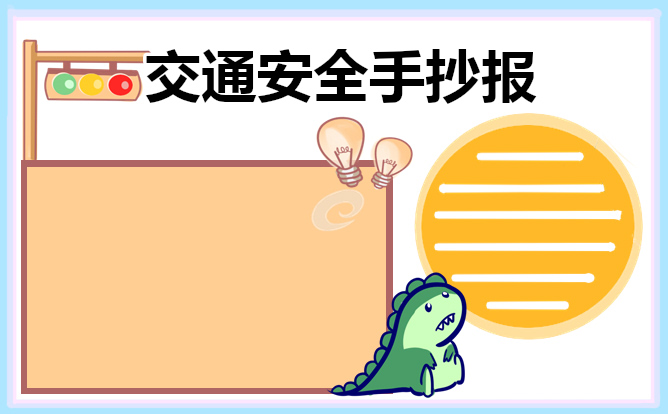雅思写作压分了怎么办
雅思写作被压分了?传言内地雅思口语写作一直被压分,不管是不是存在这样的问题,雅思写作压分了怎么办,今天小编给大家带来了雅思写作压分了怎么办,希望能够帮助到大家,一起来学习吧。
雅思写作压分了怎么办
雅思写作压分真的存在吗?
首先我们来看一下雅思写作判分流程:
1. 雅思考试中除了听力和阅读是机器读卡判卷外,雅思口语的打分和写作的判卷都是人工完成的;
2. 写作中大、小作文成绩分别由两个不同的考官评出;
3. 大、小作文每篇文章只有一个考官评分,而不是坊间传言的一篇文章两个考官打分。
但这并不代表两个考官对一篇文章分别评分。而是考官1评完分,如果考生没有异议,考官1所给分数即为考生该文章成绩,但若是考生提出复议时,考官2会撕掉考官1的评分重新对该文章打分,这也是为什么考官1的评分在下面,考官2 的评分在上面的原因。
考官第二次的评分是考生该文章最终成绩,如考生仍有异议也不可再申请复议。
通过以上分析大家可以看出,写作复议只有一次机会。判断是否进行复议,避免不必要的支出(复议费用1400RMB);如何做到复议即可提分,省去再次漫长的备考过程,这是一个重要的和讲究策略的决定。
雅思复议成功率大不大
1. 考生要清楚考试遇到的作文题目对自己是难、是易,以及能大致评估出自己所写作文的水平(高、中、低那一档)。
2. 其它三个单项成绩和写作成绩的分差(其它三个单项分数要高于写作)。
关于雅思复议:
1、雅思复议结果什么时候出:6个星期之内。
2、雅思复议费用 1400+快递费用
3、雅思复议会降分吗?雅思复议成功,你将会获得新的雅思成绩单,如果复议结果降分,则分数维持不变。
4、雅思复议成功如何退款:雅思复议成功后,你的复议费用会原路返回你的银行账户
注:这些词和短语在口语对话或者非正式写作中是可以接受的,然而在雅思作文中,你应该避免使用一些过于不正式、不精确、模糊、夸张、主观性强以及空洞、冗长的表达。
雅思写作评分标准:
考生质疑自己的雅思写作压分,也许你应该再了解一下雅思写作评分标准,看看自己是否符合要求。
写作任务完成情况(TA)/任务回应情况(TR)
Task 1的要求是考生在大约20分钟内完成一篇至少150字的文章,包括:summarize, describe or explain 图表所包含的信息,同时也需要对相关信息进行比较。
为了出色地完成Task 1,在TA这个标准下,考官建议注意以下几点:
1. 考生需要找出图标中所有关键信息,遗漏重要的细节可能会失分。
2. 进行解释说明时,需要提供充分、适量的细节。涉及数据或形容趋势或过程时,保证其真确性。
3. 一个清晰的概述至关重要(开头或者结尾要做一个总结),即从图表或数据中总结出最为明显的趋势或者特征。
Task 2 的要求是考生在大约40分钟内完成一篇至少250字的文章:就某一问题阐述自己的观点,并使用证据来支持此观点。
为了出色地完成Task 2,在TR这个标准下,考官建议注意以下几点:
1. 回答题目中的所有要求;
2. 提出并使用论据支持自己的观点:不要只提观点!要添加论据来支持观点并解释;
3. 不要一句话一笔带过一个观点;
4. 保证整篇文章的观点清晰一致。
连贯与衔接(CC)
旨在考察考生组织文章以及连接信息和观点的能力。连贯性指文章的流畅程度、文章的观点应该逻辑清楚、段落结构恰当,以易于理解和把握。衔接性指连接词的使用,有助于整合观点并阐明段落、句子或句子成分之间的关系。
在CC这个标准下,考官建议我们注意以下几点:
1. 分段很重要,有助于阶段性地解释文章论点;每个段落中最好阐述一个观点或者一组观点;
2. 句首中心句,简明地提出本段主要观点;
3. 恰当地使用连接词或短语来连接段落和句子 ;(注意不要使用过度!)
task 2中,可以开头改述题目,提出自己的观点;正文部分列举论点,结尾部分解释自己的观点。
雅思写作6分在CC这方面的官方要求:
1. 连贯地组织信息及观点,总体来说,能清晰地推进行文发展;
2. 有效地使用衔接手段,但句内及/ 或句间的衔接有时有误或过于机械;
3. 有时无法保持一贯清晰或恰当地使用指代;
4. 使用段落写作,但未能保持段落间的逻辑。(task 2相比task 1多的一项要求)
词汇多样性(LR)
这个评分标准主要考察考生写作词汇的多样性&准确性。在学习英文词汇事,在LR这个标准下,我们建议大家可以从以下方面:
1. 注意学习同义词,有效避免用词重复;
2. 学习多种描述变化或趋势的表达方式;
3. 在文中避免过多使用考题中的单词;
task 2 中尽可能多的找出题目中的关键词所对应的同义词并在文中使用;
1. 不要孤立的学习单词,要学习词组组合或词汇搭配;
2. 在不同的语境中,使用正确的词性;
3. 写完一定要检查;(检查拼写错误,丰富语言)
4. 正确使用一些不常见词汇。不要试图使用复杂的词汇打动考官;
5. 考官不会根据文章观点的创意正确与否进行评分,看的是你的有效、准确地阐述观点!
语法多样性及准确性(GRA)
多样性:关注时态、比较级、情态动词、条件句、被动语态、复杂句的使用。
准确性:并不要求考生做到100%无误,但控制错误率很重要!考官将会根据这些错误“影响信息交流的程度”酌情扣分,而非“错误的数量”!
在GRA这个标准下,我们需要注意的是:
描述某件事情的时候,一定要考虑句子的时态。如果这件事情发生在过去,就用过去时态;如果发生在现在,就用现在时态,如果是对未来的推测,就用多种将来时态;
在分析task1 的表格的时候就要分析数据发生的时态,选用恰当的时态对表格中的信息进行描述;
复杂句和简单句,两者使用量要平衡;
留出时间检查语法错误,你会发现你总是能够发现一些错误,纠正错误,提高语法准确
雅思写作压分?也许只是你以为自己写的还不错,结果却入了雅思写作低分的坑。
雅思写作低分原因分析:
1.Too informal 非正式用语
雅思作文要比网站上的一些非学术材料或者平时我们说话的语言更为严谨和正式,下面这些词对于写作来说太随意。
2.Too unsophisticated 用词不准确
有些词不应该被使用,因为它们没有学术的风格。因为使用太多的简单词汇会让你的写作感觉很基础,最好可以用更精确的词来代替。用一个词代替动词短语是更好的选择。
3.Too vague 表达模糊
使用含糊不清的词汇会让你的写作不精确,可能会让人们用不同的方式来解读它。一定要避免下面的表达,尽量使语言更具体。
4.Too exaggerated 用词夸张
学术写作通常是不加修饰和直接的。一些频率副词(如always和never)、最高级(这些词表示某事物是最高程度的,例如best)和加强词(这些词是用来表示强调的,比如very),往往过于戏剧化。
他们可能也不准确——当你说某件事是完美的或者从来没有发生过的时候,你是在做出一个重大的断言。这些术语有时会增加价值,但尽量少使用它们。
5.Generally unnecessary 非必要用词
你应该努力使你的雅思写作尽可能简练,避免添加那些没有意义的单词和短语,即使你认为它们给你的写作带来了更精炼的感觉。
雅思写作Task2教育类考官范文
Some people believe that children leisure activities must be educational, otherwise they are a complete waste of time.
Do you agree or disagree?
Model Answer:
Today, education has become a priority for many parents seeking to secure a good future for their children in this rapidly changing world. They believe that if their children apply themselves and work hard at school, then they will increase their opportunities for going to higher education and eventually getting a good job. Of course they are right, and as access to the best education and best jobs is becoming more competitive, then it is true that children have to make the best of their study time when they are young.
However, the parents who do not allow their children sufficient free time for leisure activities outside school hours, are misguided. Such activities are far from being a waste of time for the children simply because they are not academic. It is important to remember that children need to develop skills other than intellectual ones, and the best way to do this is through activities such as sports, games and playing with other kids. If they cannot play make-believe games, how can they develop their imagination? How can they learn physical co-ordination or learn important social lessons about winning and losing if they do not practise any sports? Many children form strong, personal relationships with the friends they play with, and without the opportunity to do this, they could grow up emotionally immature or unformed.
Finally, I think it is also important to remember that children need to relax as well as work. If everything they do must have some educational or academic relevance, then they will soon get tired of studying altogether, which is the last thing parents would want.
雅思写作Task2教育类考官范文
It is often said that the subjects taught in schools are too academic in orientation and that it would be more useful for children to learn about practical matters such as home management, work and interpersonal skills.
To what extent do you agree or disagree?
Model Answer:
A criticism often heard these days is that the subjects taught in schools tend to be too academic, and contribute little to preparing a young person for the real-life tasks he or she will have to perform after graduation. They say that academic subjects are rooted in the past, and are not useful for solving modern problems. I disagree with this point of view for three reasons.
My first reason is that it is the duty of parents, not teachers, to prepare their children to deal with the practical affairs of life. The home, not the classroom, is the ideal place to learn about home management and interpersonal skills. As for work abilities and attitudes, they are best learned “on the job” and under the supervision of an experienced older worker.
My second reason is that academic subjects have withstood the test of time. They represent the accumulated wisdom of our ancestors down through the ages, and, far from being impractical, they equip us with the knowledge and confidence to make sound judgements about any problems which may crop up. In addition, academic subjects are good for training us in mental discipline, while practical subjects are weak in this regard.
My third reason is based on the saying “Man does not live by bread alone.” Schooldays devoted solely to instruction in down-to-earth practical matters would be dull indeed! Lessons in the best literature of the world, and the epoch-making scientific and geographical discoveries of the past enrich our lives and make us feel that we are part of the great family of mankind.
All in all, the teaching of academic subjects in schools is entirely appropriate. It is my firmly held view that practical subjects have no place in the classroom. On the contrary, the curriculum should be more academic!





